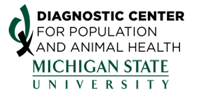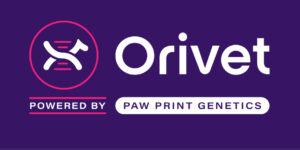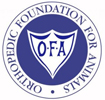The following is a list of common concerns for the Irish Setter and some additional resources for your Irish Setter’s wellness; click on the heading to expand each topic.
ISCA is proud to be a champion sponsor of the AKC CHF Bloat Initiative project. This unique approach focuses on both education and research
http://www.akcchf.org/canine-health/top-health-concerns/bloat/
Here are two excellent webinar about GDV
https://www.vetvine.com/article/695/akcchf-gdv-what-we-know-and-what-we-wish-we-knew
http://www.akcchf.org/educational-resources/Webinars/bloat.html
http://www.akcchf.org/educational-resources/library/articles/GSD-Update-Fall2019-Bloat.pdf
This is an excellent chart to consult to determine if your Irish Setter is a healthy weight:
https://www.library.tufts.edu/vet/images/bcs_dog.pdf
Every stud dog and every brood bitch should have a Brucellosis test before breeding.
Every dog that is adopted from a shelter or through a rescue should be tested negative for Brucellosis before coming in contact with your family and your other pets.
For complete information about this zoonotic disease (a disease that can be spread from dog to humans):
Here is an informative video about what to expect when you visit an oncologist (a cancer specialist) for the first time with your dog:
http://www.akcchf.org/educational-resources/podcasts/what-to-expect-when-you-visit.html
This is an overview of advances in immunotherapy in cancer treatment:
https://www.vetvine.com/article/284/akcchf-cancer-immunotherapy-event
This is an overview of advances in cancer and the use of dogs in clinical trials:
http://www.akcchf.org/news-events/news/chf-featured-in-webmd-canine-cancer.html
To read more information about each type of cancer click on the name:
Gastric carcinoma
https://www.vin.com/apputil/content/defaultadv1.aspx?pId=11387&id=5947816
Hemangiosarcoma
http://www.akcchf.org/assets/files/GoldenUpdate_Summer2017.pdf
https://www.vetvine.com/article/375/akcchf-update-on-canine-hemangiosarcoma
Lymphoma
https://www.vetvine.com/article/313/akcchf-lymphoma-and-epigenetics-event
An interesting video about research in lymphoma:
Jeffrey Bryan, DVM, PhD, DACVIM-Oncology – Diffuse Large B Cell Lymphoma (DLBCL) of Golden Retrievers Has a Unique DNA Methylation Signature That Yields Biomarkers of Disease
http://www.akcchf.org/canine-health/top-health-concerns/canine-cancer/update-1418.html
Osteosarcoma
http://www.akcchf.org/educational-resources/Webinars/new-bone-cancer-therapy.html
http://www.akcchf.org/canine-health/top-health-concerns/canine-cancer/myas-tale-of-hope.html
Sarcoma
https://mct.aacrjournals.org/content/early/2017/02/13/1535-7163.MCT-16-0637
ISCA encourages our members to register their dog’s health testing results with OFA.
Getting a CHIC number does NOT indicate that the dog has cleared all the health clearances required. It does mean that the dog’s owners are honest about revealing results, whatever they are.
The days of hiding results need to be left behind. It is only by being honest and open about our dogs that we can go forward, assuring results are used in a scientific manner allowing for genetic diversity in our breed.
What is CHIC? https://www.ofa.org/about/chic-program
CHIC FAQ https://www.ofa.org/about/faq
What tests does ISCA require for CHIC certification? https://www.ofa.org/recommended-tests?breed=IR
IRISH Setter
OFA-CHIC Health Testing Requirements
The OFA, working with the breed’s parent club, recommends the following basic health screening tests for all breeding stock. Dogs meeting these basic health screening requirements will be issued Canine Health Information Center (CHIC) numbers. For CHIC certification, all results do not need to be normal, but they must all be in the public domain so that responsible breeders can make more informed breeding decisions. For potential puppy buyers, CHIC certification is a good indicator the breeder responsibly factors good health into their selection criteria. The breed specific list below represents the basic health screening recommendations. It is not all encompassing. There may be other health screening tests appropriate for this breed. And, there may be other health concerns for which there is no commonly accepted screening protocol available.
- Hip Dysplasia (One of the following)
OFA Evaluation ➚
PennHIP Evaluation - Autoimmune thyroiditis
OFA evaluation from an approved laboratory ➚ - Progressive Retinal Atrophy (One of the following)
DNA based test results from an approved lab (per ISCA: Paw Print Genetics or Wisdom Health) ➚
Irish Setter Genetic Registry (ISGR)
Notes
In addition to the breed specific requirements above, a CHIC requirement across all participating breeds is that the dog must be permanently identified via microchip or tattoo in order to qualify for a CHIC number.
CHIC numbers generate automatically within 1 to 2 weeks after all the required test results have been registered with the OFA.
For dogs residing outside the US or Canada, owners may submit their country’s equivalent health screening results for listing on the OFA website. These requests are reviewed on a case by case basis and fees apply. Once these results have been recorded with the OFA, owners may request CHIC numbers if they’ve met all the CHIC requirements through regular registrations or international equivalents. These requests are handled on a case by case basis.
What is CLAD and why should we care?
CLAD (Canine Leukocyte Adhesion Deficiency) is an inherited condition which is seen in Irish Setters and Irish Red and White Setters. It has been found in England and in Scandinavia, where the original research was done. The carrier rate was about 12% at the time, but through careful breeding it has come down. CLAD is carried as a recessive mutation in which the dog requires two copies of the gene (CD18) in order to be affected. A dog with one normal gene bred to a dog with a mutant gene will be a carrier. If both parents carry the gene the offspring will be affected.
Affected dogs are unable to mount an immune response because the gene controlling the activity of white blood cells in the body cannot function.
The symptoms of CLAD are severe, repeated bacterial infections. Onset may be early, in young puppies. Several puppies in a litter may be affected. They are often small at birth and appear not to thrive. Typical symptoms include gingivitis, skin lesions, dermatitis of the feet, lethargy, lack of appetite and various types of bone deformity. Thickening of the lower jaw develops with pain so that the dog will be reluctant to open its mouth. Anemia is usually present as well as involvement of the lymph nodes.
There is no cure for this disease which grows progressively worse as the dog matures. Most puppies die early or are euthanized before a year.
In the United States we are fortunate not to have identified any affected or carrier Irish Setters in recent years. However, due to the increased rate of international matings through the use of frozen semen, or importation of dogs/bitches, it would be prudent for breeders to act preventively, not reactively.
To test your dog for CLAD: https://www.pawprintgenetics.com/products/breeds/125/
Starting in 2020, ISCA will be using Paw Print Genetics as our partner for testing at our National Specialties, due to Optigen’s closing. Please see details below.
Going forward, ISCA only recognizes results from Paw Print Genetics or Wisdom Health for CLAD, rcd-1 PRA testing and rdc-4 PRA testing. All tests may be done via blood draw or cheek swab. Of course results received from Optigen prior to their close will always be accepted.
February 2020 New about new lab for PRA and CLAD testing
Beginning in 2020, ISCA will be using Paw Print Genetics for testing for rcd-1, rcd-4 and CLAD. CLAD and rcd-1 are already available on their website and by spring rcd-4 will be added to the Irish Setter panel. Tests can be ordered individually. The Irish Setter panel also includes DM (degenerative myelopathy) and von Willebrand disease type 1.
As many members know, Optigen is no longer in business. They were taken over by another corporation, which we used in 2019. Last year there was no time to explore alternatives for testing.
As health chair, my goal during 2019 was to find a company that did mutation-based testing and where individual tests could be ordered, not just as a “batch” with a list of tests that aren’t necessarily applicable to our breed. We also needed a company that would accept blood samples, as well as cheek swabs.
Gustavo Aguirre DVM (who did ISCA’s original PRA research and discovered the genetic test for rcd-1) has been so helpful, giving me feedback and guidance and the right questions to ask. I am especially grateful to Jerold Bell DVM for all his insight and expertise. Susan Hamil was also a great resource. Thanks also to Cheryl Stiehl, Jan Ziech, and Jeanine Wilson for their help.
Thanks go out to input from parent club reps at the American Kennel Club Canine Health Foundation Parent Club Conference for sharing in the dilemma of where to go for our parent club needs.
Paw Print Genetics, along with 3 other laboratories, developed the first set of Standards & Guidelines for clinical canine genetic testing. In these S&G, there are minimal standards and desired standards. Paw Print Genetics meets the desired standards in that they test each mutation region twice with two independent methods which allows them to provide the highest accuracy in the industry. They understand that accuracy matters and take those extra steps to ensure highly accurate results.
Samples collected at our health clinic in June for rd-1, rcd-4 and CLAD will be sent to Paw Print Genetics.
Of course, there are members who cannot attend the National. In the past Optigen would give us a code good for two weeks surrounding our National, where people could go to their own vet with forms from Optigen website, prepay and send the tests to them. Paw Print Genetics has given us a code for member discounts year-round.
We also will keep all the information on how to order these tests year-round on the ISCA website, as people will often decide to breed their dog who is genetic testing by parentage, and want to take the step of doing a genetic test on that dog for verification. Dr Aguirre had urged us to test every 3rd generation so we would be alert for any possible genetic mutation. Now that the cost of the test is so reasonable, many people test every generation.
Some of you may have questions about why we can use cheek swabs for personal individual testing. Cheek swab techniques do get an adequate amount of DNA to be used for genetic testing, as is evidenced by AKC using this technique for DNA parentage identification. At our clinics at the National it is more efficient for us to collect blood samples, but for in home use, owners may prefer to get a testing kit from Paw Print.
Here is the information about Paw Print Genetics:
The Irish Setter Club of America has partnered with Paw Print Genetics to provide you accurate genetic testing at an affordable cost. Please use code ISCA2020 to save 40% off any order of individual disease tests or 50% off the Irish Setter Panel. You can view the diseases offered for Irish Setters here: https://www.pawprintgenetics.com/products/breeds/125/
To maximize your savings, you should group dogs according to whether they have single tests being ordered or panels. For example, group all dogs with 1 or more single tests into one order to get 40% off and place a second order for any dogs needing the Irish Setter Panel for 50% off. You must apply the code ISCA2020 at checkout. This code is active now and valid through December 31, 2020. Please note that this code cannot be applied to a previous order, combined with other discounts and DNA profiling, parentage testing and Clear by Parentage certificates are excluded. Please contact Paw Print Genetics with any questions, toll free at 1-855-202-4889, direct at 509-483-5950 or by email by email at AskUs@pawprintgenetics.com
To read an article on Degenerative Myelopathy by Dr Christine Boutwell
To learn more about the most current information on degenerative myelopathy, watch this free webinar:
- AKC provides a good starting point for emergency planning: https://webapps.akc.org/public_education/emergency.cfm
- They also offer information about other basic health topics on this page: https://www.akc.org/expert-advice/health/
https://veterinarypartner.vin.com/default.aspx?pid=19239&id=4951440
One Breeder’s Experience – from February 2024 Memo
ISCA is proud to be a sponsor of the AKC CHF Epilepsy Initiative.
Irish Setters affected by epilepsy and their litter mates, half siblings along with sire and dam: PLEASE Participate in Epilepsy Research for Irish Setters!
The Irish Setter Club of America, the Irish Setter Club of America Foundation and the AKC Canine Health Foundation have teamed up for research on epilepsy in the Irish Setter breed.
Working with Dr. Gary Johnson and his team at the University of Missouri, ISCA is participating in the following study to identify genetic risk factors for Irish Setters:
CHF Grant# 2257: The Identification of Genetic Risk Factors for Canine Epilepsy
Principal Investigator(s): Gary Johnson, DVM, PhD
Institution(s): University of Missouri
How You Can Help!
- Go to this link to first fill out the Canine Epilepsy Network Seizure Survey about your dog(s): http://www.canine-epilepsy.net/
The survey takes about 5 – 15 minutes/dog
- Collect and send blood samples for DNA Note: It is helpful, wherever possible, to submit samples from all siblings, both parents, and all available grandparents.
- Detailed information and forms needed for sending samples are available at this link: http://www.canine-epilepsy.net/
- Here are the basics of what you need to do:
- Begin by gathering the pedigree, litter information, and litter list(s) for each dog or family you plan to submit.
- Send blood samples and individual dog information forms to Dr. Johnson’s laboratory at this address:
Send samples and information to Dr. Johnson’s lab at this address:
Dr. Gary Johnson – [breed of dog] DNA Research
209 A Connaway Hall
University of Missouri
Columbia, MO 65211
If you need clarification, or have any questions about any of these procedures, please contact Liz Hansen by phone (573-884-3712), email (hansenl@missouri.edu), or regular mail (209A Connaway Hall, University of Missouri, Columbia, MO 65211). Liz is Dr. Johnson’s Coordinator of Veterinary Information, and can help with any questions you may have.
Sample requirements:
- Collect 5-10 ml of whole blood, in purple-topped (EDTA) tubes; for very small dogs or puppies, 3 ml should be sufficient. No further sample handling is required other than to refrigerate if the sample is being held for any time before shipping.
- Ship via overnight delivery (US Mail, UPS, or FedEx). DO NOT SHIP SAMPLES ON FRIDAY, SATURDAY, SUNDAY OR if samples would arrive on a HOLIDAY. Samples should be packed in a small insulated container (most vets have these for shipping samples), with one or more cool packs – blood samples are to be kept cool but not frozen.
- Label each sample tube with the dog’s call name and owner last name; send an individual dog information form and a pedigree copy with EACH sample submitted. If the dog is not affected but is a relative of an affected dog, indicate the relationship.
- You can reach Dr. Johnson’s project coordinator, Liz Hansen, directly if, after you review the survey or sample forms, you have questions. Reach Liz by phone or email at: by phone (573-884-3712); email (HansenL@missouri.edu).
Thank you for contributing to epilepsy research for the betterment of your breed!
To watch a webinar about possible links between gastrointestinal health and epilepsy, click on this link:
https://www.vetvine.com/article/376/akcchf-update-on-canine-epilepsy
Here are some helpful links regarding First Aid:
An excellent overview on hip dysplasia can be found at both these websites:
- https://www.acvs.org/small-animal/canine-hip-dysplasia
- https://www.akc.org/expert-advice/health/hip-dysplasia-in-dogs/
An interesting study was done that studied the effect of weight in puppies and its correlation with hip dysplasia:
Protocol for treatment of Hypertrophic Osteodystrophy (HOD) in Irish Setters.
HOD is a serious illness affecting puppies, usually between 4-7 months of age. It is characterized by fever, pain, swelling of the joints, lethargy, lack of appetite. If left untreated permanent deformity of the front legs may occur. The treatment protocol recommended here has been developed by ISCA member, S. Gary Brown, DVM, an orthopedic surgeon.
Here is an excellent overview of infectious disease control in group settings:
Here is practical advice from John Hopkins about pets and infectious disease; it includes information on dog bites:
For a complete list of active grants and grant reports: http://www.akcchf.org/research/research-portfolio/program-area/gastrointestinal-active-grants.html
For an overview of IBD click this link: https://pets.webmd.com/dogs/inflammatory-bowel-disease-ibd-dogs
For complete information about what nomographs are and how you can have one done if your bitch is pregnant:
https://www.vetmed.wisc.edu/lab/cavids/canine-nomograph-what-is-it/
If you just need the form to have a nomograph done on your bitch at the University of Wisconsin, here is the link:
https://www.vetmed.wisc.edu/lab/cavids/serum-submission-form-2/
When sending the blood sample to University of Wisconsin for a nomograph, you do not have to send on ice over 24 hours. The most efficient way is sending via United States Postal service in a 2 day priority box, which should cost about $9.
This article about Advances in Canine Pharmacology offers some new insight about Librela, a Zoetis product, is the first monoclonal antibody drug FDA approved in May of 2023 that targets pain management for Osteoarthritis in dogs. Thanks to author Pat Boldt.
The following links contain great information about senior dog exercise and care:
- Proper Conditioning Helps Active Older Dogs Stay Healthy & Well
- Osteoarthritis with Dr. Duncan Lascelles, PhD
- Senior Dog Rehabilitation with Laurie McCauley, DVM, DACVSMR, CCRT, CVA, CVC
- Discovering the keys to a healthy lifespan
- Global pharmacovigilance reporting of the first monoclonal antibody for canine osteoarthritis
- A randomised, parallel-group clinical trial comparing bedinvetmab to meloxicam for the management of canine osteoarthritis
For an excellent overview of panosteitis: https://www.petmd.com/dog/conditions/musculoskeletal/c_multi_panosteitis
Current treatment regimen favors NOT restricting exercise to be sure muscles stay strong, most veterinarians favor using non-steroidals like rimadyl to assure the dog is comfortable but remains active.
For immediate information in an emergency call:
Call the ASPCA Animal Poison Control Center at 1-888-426-4435 ($65 fee may apply)
For an overview of the most common pet poisons:
https://www.amcny.org/wp-content/uploads/2018/12/Pet-Poisons.pdf
ISCA will be using Paw Print Genetics as our partner for testing at our National Specialties, due to Optigen’s closing. Please see details below.
ISCA only recognizes results from Paw Print Genetics or Wisdom Health for rcd-1 PRA testing and rdc-4 PRA testing. All tests may be done via blood draw or cheek swab. Of course results received from Optigen prior to their close will always be accepted.
To register a dog with OFA, that has been tested genetically clear of rcd-1 PRA, rcd-4 PRA, and/or CLAD; fill out the OFA DNA form below. Complete the form, print, mail (be sure to include your results!), along with the Fees.
To register dogs clear of rcd-1 PRA that are the offspring of a blood tested sire and dam who are registered OFA; use the same form and be sure to include a 4 generation Pedigree.
There are two types of progressive retinal atrophy in the Irish Setter:
- Early onset (rcd-1) This link provides an explanation about mode of inheritance and genetic testing for rcd-1: https://www.pawprintgenetics.com/products/tests/details/67/?breed=125
- Late onset (rcd-4). This link provides an excellent overview of Late Onset PRA (LOPRA): https://www.ofa.org/diseases/dna-tested-diseases/rcd4-pra
Both types of PRA have genetic blood tests that can be done, although the mode of inheritance for each is different.
In correspondence with Gustavo Aquirre DVM PhD who did the original genetic research for rcd-1 in the Irish Setter, he provided this timely and important insight regarding using dogs who test affected for rcd-4:
“There is absolutely no need to panic and the breeding recommendations that we have in place for rcd1 apply to LOPRA. Affected dogs CAN and SHOULD be bred if of exceptional quality, but only to genetically normal dogs. Please keep reminding the club members that you are breeding dogs and not test results, and it is essential to maintain genetic diversity in the breed.”
For a list of dogs tested or genetically clear of rcd 1PRA click this link:
Here is the information about how to order a cheek swab test directly from Paw Print Genetics:
The Irish Setter Club of America has partnered with Paw Print Genetics to save on your genetic testing. Apply code ISCA22 to save 40% off any order or 50% off the Irish Setter panel. This code is valid through May 31, 2022. Profiling, Parentage and Clear by Parentage Certificates are excluded from this discount. Discount cannot be applied to previous orders. You can find your tests at https://www.pawprintgenetics.com/ or contact them at AskUs@pawprintgenetics.com.
Some of you may have questions about why we can use cheek swabs for personal individual testing. Cheek swab techniques do get an adequate amount of DNA to be used for genetic testing, as is evidenced by AKC using this technique for DNA parentage identification. At our clinics at the National it is more efficient for us to collect blood samples, but for in home use, owners may prefer to get a testing kit from Paw Print.
For the background story of why PawPrint genetics is ISCA’s approved lab & partner please read below
February 2020 New about new lab for PRA and CLAD testing
Beginning in 2020, ISCA will be using Paw Print Genetics for testing for rcd-1, rcd-4 and CLAD. CLAD and rcd-1 are already available on their website and by spring rcd-4 will be added to the Irish Setter panel. Tests can be ordered individually. The Irish Setter panel also includes DM (degenerative myelopathy) and von Willebrand disease type 1.
As many members know, Optigen is no longer in business. They were taken over by another corporation, which we used in 2019. Last year there was no time to explore alternatives for testing.
As health chair, my goal during 2019 was to find a company that did mutation-based testing and where individual tests could be ordered, not just as a “batch” with a list of tests that aren’t necessarily applicable to our breed. We also needed a company that would accept blood samples, as well as cheek swabs.
Gustavo Aguirre DVM (who did ISCA’s original PRA research and discovered the genetic test for rcd-1) has been so helpful, giving me feedback and guidance and the right questions to ask. I am especially grateful to Jerold Bell DVM for all his insight and expertise. Susan Hamil was also a great resource. Thanks also to Cheryl Stiehl, Jan Ziech, and Jeanine Wilson for their help.
Thanks go out to input from parent club reps at the American Kennel Club Canine Health Foundation Parent Club Conference for sharing in the dilemma of where to go for our parent club needs.
Paw Print Genetics, along with 3 other laboratories, developed the first set of Standards & Guidelines for clinical canine genetic testing. In these S&G, there are minimal standards and desired standards. Paw Print Genetics meets the desired standards in that they test each mutation region twice with two independent methods which allows them to provide the highest accuracy in the industry. They understand that accuracy matters and take those extra steps to ensure highly accurate results.
Samples collected at our health clinic in June for rd-1, rcd-4 and CLAD will be sent to PawPrint Genetics.
Of course, there are members who cannot attend the National. In the past Optigen would give us a code good for two weeks surrounding our National, where people could go to their own vet with forms from Optigen website, prepay and send the tests to them. Pawprint Genetics has given us a code for member discounts year-round.
We also will keep all the information on how to order these tests year-round on the ISCA website, as people will often decide to breed their dog who is genetic testing by parentage, and want to take the step of doing a genetic test on that dog for verification. Dr Aguirre had urged us to test every 3rd generation so we would be alert for any possible genetic mutation. Now that the cost of the test is so reasonable, many people test every generation.
Are you Ready for A Snake Bite?
Below are some excellent articles and a webinar about effects of spaying and neutering and things to consider; it is always a good idea to discuss these options with the breeder of your Irish Setter for their advice.
- Vasectomy and ovary-sparing spay in dogs: comparison of health and behavior outcomes with gonadectomized and sexually intact dogs
- Assisting Decision-Making on Age of Neutering for 35 Breeds of Dogs: Associated Joint Disorders, Cancers, and Urinary Incontinence
- Alternatives to traditional spay and neuter – evolving best practices in dog sterilization
- Age of neutering contributes to risk of cruciate ligament rupture in Labrador Retrievers
To watch a webinar about spay/neuter concerns click this link:
The Spay / Neuter Conundrum in Dogs: Breed and Body Size-Specific Guidelines
Canine Health Information Center offers a data base of information regarding dogs who have had parent club approved health testing.
OFA CHIC also offers a wonderful opportunity to store DNA from your dogs for future use as new genetic tests are discovered. This link provides all the information you need to do this. ISCA also offered free collection each year at their National specialty.
For the forms to submit DNA click this link: https://www.ofa.org/about/dna-repository
Irish Setters are a breed that does have issues with thyroid dysfunction. Click the links below for up to the minute information about thyroid disease and thyroid testing. There is also important information about thyroid testing via Michigan State University
- https://cvm.msu.edu/vdl/laboratory-sections/endocrinology/thyroid-function-in-dogs
- 2004 Thyroid Study by Gary S Brown DVM and John Savory PhD
- Report from Jean Dodds –ISCA Foundation sponsored Thyroid study June 2014 National
BREAKING NEWS February 2020
It is with great pride that the ISCA Foundation, in conjunction with the ISCA Health Committee, announces new grant support with American Kennel Club Canine Health Foundation and Michigan State University headed by Brian Petroff DVM, PhD.
This study support is being done in honor of Dr Mary Dee Sist from MSU whose help was invaluable in setting up our thyroid blood draws at the National specialty.
Grant 02659
Breed Specific Reference Ranges for Canine Thyroid Testing
Principal Investigator: Brian Petroff, DVM, PhD; Michigan State University
Total Grant Amount: $139,975
Grant Period: 6/1/2019 – 5/31/2022
Project Abstract: Thyroid disease is common in dogs with the incidence of hypothyroidism approaching 30% in some breeds. Evaluation of thyroid function currently involves comparison of thyroid hormone concentrations in an individual patient with reference ranges generated from past testing of dogs of many breeds. However, while such all-breed reference ranges are generally accurate, they may not be optimal for some individual breeds, necessitating the generation of breed specific thyroid reference ranges. In thyroid testing specific for three breeds: Irish Setters, Rhodesian Ridgebacks and Whippets, dogs will be examined and tested sequentially to insure a healthy cohort for generation of a breed specific reference range for a panel of thyroid function assays. Once completed this study will generate breed specific thyroid testing reference ranges for three dog breeds. This work offers immediate and tangible improvements in canine health by refining thyroid testing interpretation in purebred dogs
How can my dog be considered to participate in this study? As well as collecting samples for this study at our National specialty 2020 in Greeley Colorado , MSU has made it possible for up to 50 samples to be collected on dogs who cannot attend the National.
There is criteria in order to participate and selection will be done by Dr Petroff and his research team. The initial step is to call MSU to find out if your dog meets the criteria. The number to call is 517-432-5994
If 50 samples are not collected from Feb 2020 until May 15, 2020, dogs at the National will become eligible for these 50 slots.
ISCA members not attending the National who would like to enroll their dog in the study must contact MSU from Feb 2020 until May 15, 2020 and answer some questions to make sure their animal is eligible to enroll, on a first come first serve basis. You MUST commit not only to the initial sample but to submitting another sample from your dog one year from the initial sample. Again, the number to call is 517-432-5994
Once the animals are confirmed eligible for the study, MSU will record the owner’s pertinent information and ship a package that includes instructions, all forms needed for testing, and a return shipping label. This can be taken to your vet and once an exam is done, the blood can be drawn and shipped back to MSU via the box that was sent.
Costs for sample submission and results including shipping is covered by the study. The owner would be responsible for any fees charged by their vet for exam and blood sample.
In order to participate in this study, as we have done in 2017, 2018, and 2019, owners must agree to publish results on the OFA website. OFA fee will be paid by ISCA Foundation.
We are all so proud and excited to be part of this study!
Without your generous support of the Top Twenty and other Foundation fundraisers, as well as the personal gifts that are given to the Foundation by Irish Setter lovers and friends, studies like this one would not be possible.
Finally, I want to be clear that ISCA will still offer thyroid testing to ANY Irish Setter, including those wanting to pay to confirm proper dosing for those dogs on thyroid medication or those not wanting to be part of the study but wanting thyroid testing to be done at our health clinic. The fee for those samples will be published in our pre-registration packet.
Looking for the results of our studies in 2017, 2018 & 2019 ? ISCA Foundation has supported free thyroid testing at the ISCA National specialty in 2017, 2018 and 2019. Here are the results:
ISCA Thyroid Study 2017-2019

For excellent information on what titer testing is and how to have it done at the University of Wisconsin
The following links contain excellent information regarding urinary incontinence:
- http://www.akcchf.org/research/research-portfolio/1844.html
- https://hospital.vetmed.wsu.edu/2021/10/26/urinary-incontinence-in-dogs/
- https://www.aaha.org/publications/newstat/articles/2019-04/fda-approves-new-once-a-day-treatment-for-urinary-incontinence-in-dogs/#:~:text=The%20US%20Food%20and%20Drug,weakening%20muscles%20in%20the%20urethra.
For complete information on how to run a vaccine titer on your dog to see if they are protected from distemper and parvovirus click the link below:
https://www.vetmed.wisc.edu/lab/cavids/
If you just need the form to submit a blood sample for a titer, here is the link to the form:
https://www.vetmed.wisc.edu/lab/cavids/serum-submission-form-2/
When you ship your sample to University of Wisconsin it does NOT need to be sent on ice over 24 hours. The most cost effective way to send it is in a United States Post office 2 day priority box, which should be about $9 for shipping.
The information contained here is for general purposes only and is not a substitute for advice from your veterinarian. Any reliance you place on such information is strictly at your own risk.







